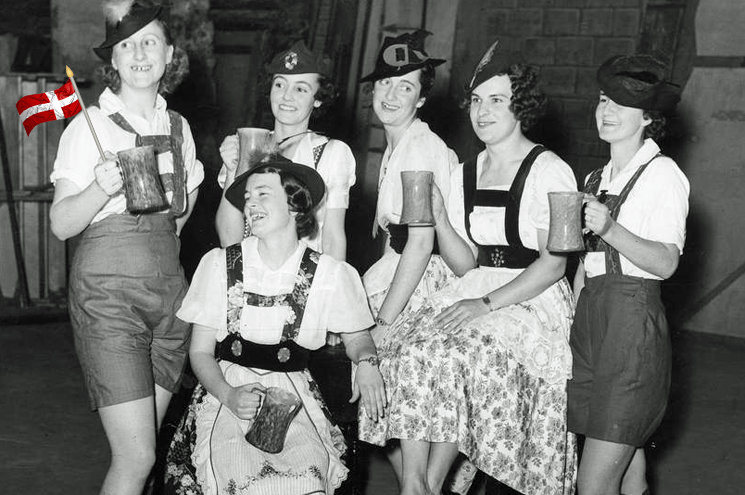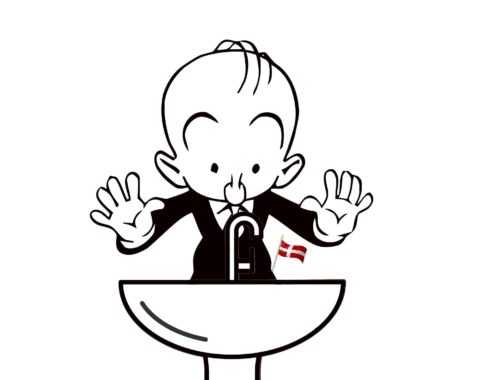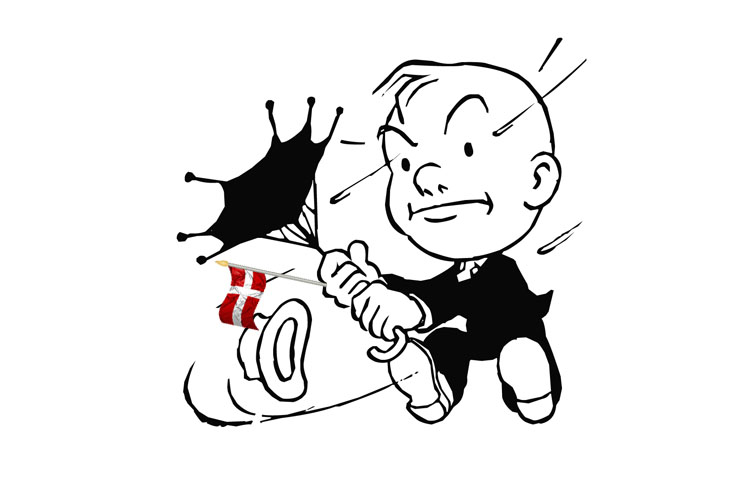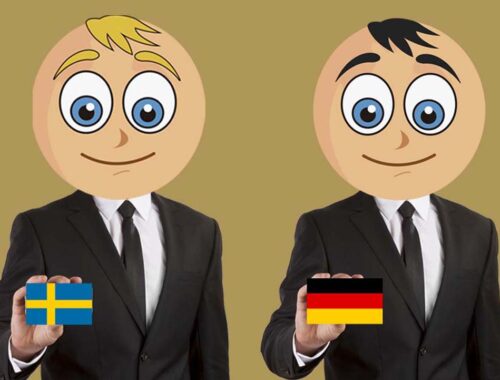I run a small business, so often I outsource minor tasks. This week I outsourced the writing of some Tweets to Jessie, a college student in the United States.
Jessie did a good job, with one major exception: in all 100 Tweets, she confused the word Danish with the word Dutch.
For example: Copenhagen Fashion Week – Check out the latest in Dutch fashion! Stay healthy like the Dutch: Bicycling in Denmark 10 top restaurants in Copenhagen: Enjoy Dutch cuisine! Now, don’t give me that stereotype about geographically dumb Americans. At least not until Europeans can tell me the difference between Iowa, Idaho and Ohio – and yes, there is a difference. Understandable confusion The Dutch are known for their windmills. The Danes are known for their wind turbines. It’s an understandable mistake. But among the neighbors to Denmark, it’s actually not the Dutch who resemble the Danes most. It’s not the Norwegians, even though Norway actually used to be a part of Denmark. It’s not the Swedes, who now serve as a low-wage workforce in Copenhagen shops and fast food restaurants. It’s the Germans. Awkward and aggressive But the Danes are more German than they’d ever want to admit. For example, the Germans love punctuality. Pünktlichkeit muss sein. So do the Danes. In Denmark, if you have a business meeting at 10am, you need to show up at precisely 10am. 10:03 is not good. 10:05 is embarrassing – you’d better apologize. 10:10 is a humiliation. And it’s not just business. I’ve had dinner parties where my guests actually circle the block so they can ring the bell at 8-dot-00-dot 00. Now, this is not entirely a bad thing. The buses run on time in Denmark. The trains often run on time. Otherwise mass transit wouldn’t be so popular. For the sake of good order Of course, the German love of order is well-known. Ordnung muß sein! Everything must be in order. And, of course, if you come across a German friend crying, wailing, in despair, you say Ist was nicht i ordnung? Is something not in order? In general, the languages are very similar: Danish, like English, is a Germanic language. I used to live in Berlin, long before I moved to Denmark, and I still confuse the languages. When I’m speaking Danish I sometimes reach for some long-forgotten adjective and I take a moment to wrestle with the question – is this word I’ve found German or is it Danish? At least half the time I’m wrong. No Bundesflagge on birthday cakes The Danish flag is almost always used on birthday cakes, but you won’t seen the Bundesflagge on top of a geburtstagstorte, unless maybe the German team is in the World Cup. And Germans love their hierarchy, in a way Danes do not. In Denmark, just about everybody uses his or her first name – teachers, doctors, bank officers. An incredibly old lady might be Fru Jensen, but I don’t think I’ve used the corresponding masculine title, Herr Jensen, in the 13 years I’ve been in Denmark. Germans, on the other hand, love their titles, and even pile them on top of each other. Herr Doktor Professor von Schmidt. People who know German – or French or Spanish for that matter – know there’s two ways to say ‘you’, formal and informal. In French it’s tu and vous, in Spanish it’s usted and tu, and in German it’s du and Sie – and woe be it to you if you use du when the German you’re talking to is expecting the formal Sie. That’s not true in Denmark. Everybody is du There is a formal Danish ‘you’, called De, which immigrants still learn in language schools, but it’s never used. Except for letters you get from your bank. Don’t ask me why. The dominant neighbor? Danes drive into Germany to buy beer and soda pop, not the other way around. And Germany has invaded Denmark several times, most recently in the 1990s, when Germans were buying up all the summer houses in Western Denmark, driving out the Danes. This is true – Denmark got a special dispensation from the EU to prohibit Germans from buying summer houses in Denmark. But in recent years, the flow of influence has gone in the other direction, particularly when it comes to Berlin, the German capital. Locals there have been complaining because foreign investors are buying huge blocks of apartments, driving up the prices. And the biggest group of foreign property investors….are from Denmark. Image mashup copyright Kay Xander Mellish 2025 Read also:
The fact is, confusing the Dutch and the Danes is understandable. They both represent small, peaceful countries with seafaring traditions. Countries which are today best known for healthy blond people on bicycles, rushing home to see their monarchs on TV and eat potato-based dishes.
Now, my Danish friends might not like to hear me say that. There have been wars, and the Germans are sometimes seen as awkward and aggressive.
Both countries also like order. If a Dane wants to say that someone is a stand-up, trustworthy guy, they say he’s ordentlig – orderly. When they want you to clarify something, they ask you to do it ‘for the sake of good order.’ For god ordens skyld. For the sake of good order, let’s write this contract down.
Of course, there are differences. Danes are wildly and openly patriotic in a way Germans are not, for obvious historical reasons.
Now there is one irony in the Danish-German relationship. For many years, Germany has been the dominant partner. Even today, Danish schoolchildren learn German – German kids don’t learn Danish. Buy Kay’s books about Denmark on Amazon, Saxo, Google Books, Apple Books, Barnes & Noble Nook, or via our webshop.
Denmark and WWII: Thoughts on an anniversary





